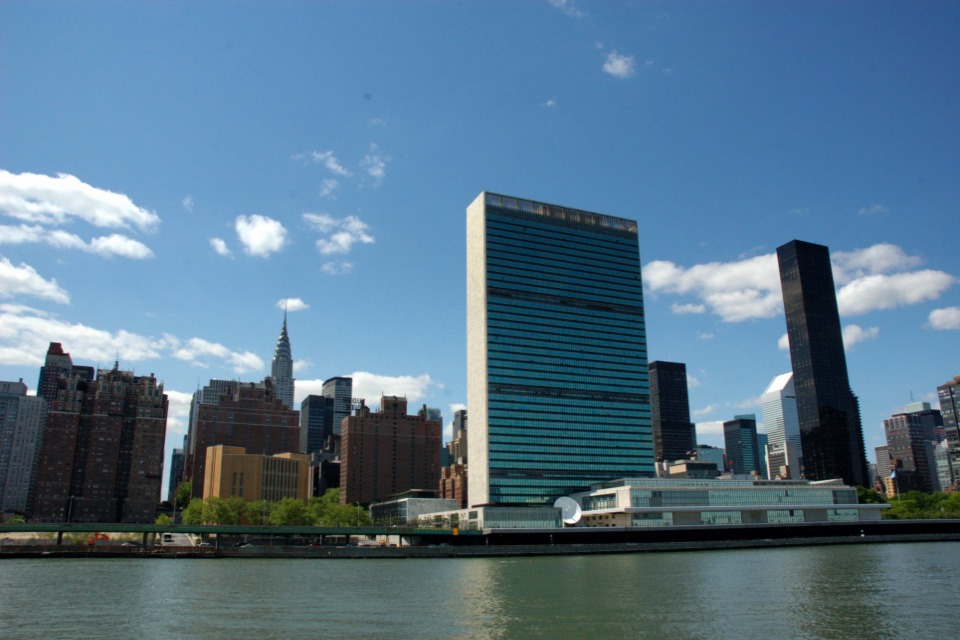"Let us commit today to rebuilding our efforts to combat organised crime"
UK Statement by Ambassador Lyall Grant at the UN Security Council Session on Drug Trafficking in the Sahel and West Africa

Thank you, Mr President, for convening this important discussion and I’d like to thank the Secretary-General for his personal engagement and his presence at today’s debate. I would also like to thank Under Secretary-General Fedotov and SRSG Djinnit for their statements this morning.
Today’s briefing highlights one of the core challenges facing the Sahel and is relevant to our wider discussions on this region earlier this month. We welcome the adoption of the Presidential Statement.
And permit me to take the opportunity of what might be the last formal meeting of the Security Council in 2013, to recognise the presence of the Foreign Minister of Guatemala and to warmly acknowledge the very valuable contribution that his country, as well as the other four outgoing Members of the Security Council, Azerbaijan, Morocco, Pakistan and Togo, have made to maintaining international peace and security over the last two years.
Mr President,
Organised crime across the Sahel and West Africa is a multi-million dollar business, which damages the social fabric not just in the Sahel and West Africa as a region of transit, but also in the destination countries in Europe, the Middle East and North America.
Drug trafficking is one of the most serious aspects of this organised crime activity in the region.
In February this year UNODC estimated that some 18 tonnes of cocaine transit West Africa every year. While down from its peak of 47 tonnes in 2007, evidence shows that the trend is again upwards. The United Kingdom’s National Crime Agency estimates that between 13-15% of Europe-bound cocaine - worth over $1 billion on arrival in the European Union - transits West Africa.
But it is no longer just cocaine. We are also seeing an increase in heroin transiting through West Africa, mainly by courier from South West Asia, including Iran and Turkey. Much of this is destined for Europe, and some for North America.
Meanwhile cannabis smuggling through the Sahel remains a serious concern, with its destination markets as far afield as Egypt, Israel and even further east.
Mr President,
In addition to revenue raised from drugs trafficking, cigarette smuggling and kidnapping for ransom provide terrorists with funding to continue their activities. Yesterday, the United Kingdom became the fortieth country to sign the Protocol on the Illicit Trade in Tobacco products and we encourage all Member States to sign this important protocol. The United Kingdom has also proposed a Security Council resolution, reminding Member States of their obligations not to pay ransoms to kidnappers which could be used for terrorist purposes. We hope that the Council will agree this draft shortly.
Mr President,
To tackle the scourge of organised crime, we must take a regional and holistic approach. We must disrupt crime by all available means – not just through law enforcement and prosecution, but by addressing the enablers of crime.
Of course we face important challenges:
· Widespread corruption continues to hinder effective state action. And it attracts organised criminals, who exploit the distinctions between jurisdictions and the corruption within them.
· Organised crime groups exploit instability and weak governance. Their activity further undermines fragile states and governments.
· Lack of capacity and funding in law enforcement agencies, and limited intelligence gathering capability across the region creates gaps that organised criminals can exploit.
Mr President,
Tackling these challenges head-on will give regional governments a better chance of dealing with organised crime. Strengthening state institutions will enable them to deliver basic services, reducing the attraction of crime. This activity must be matched by deeper regional co-operation to sustainably disrupt transnational criminal networks.
We need to focus our actions on:
· Firstly, building good governance to set the preconditions for a successful response.
· Secondly, strengthening regional ability to share information and conduct investigations
· Thirdly, building criminal justice capacity
· Fourthly, improving joint action on borders and cross-border traffic.
Mr President,
During 2013, the United Kingdom’s G8 presidency has built on the work of previous presidencies by co-ordinating G8-Plus action on organised crime in West Africa. We have established a network of criminal justice advisers, which will help to strengthen the rule of law and improve prosecutions by local authorities. We have also proposed a donor coordination mechanism which will improve strategic coordination, particularly with ECOWAS. Let us commit today to redoubling our efforts to combat organised crime, to enable this region to rid itself of this scourge.
Thank you Mr President.